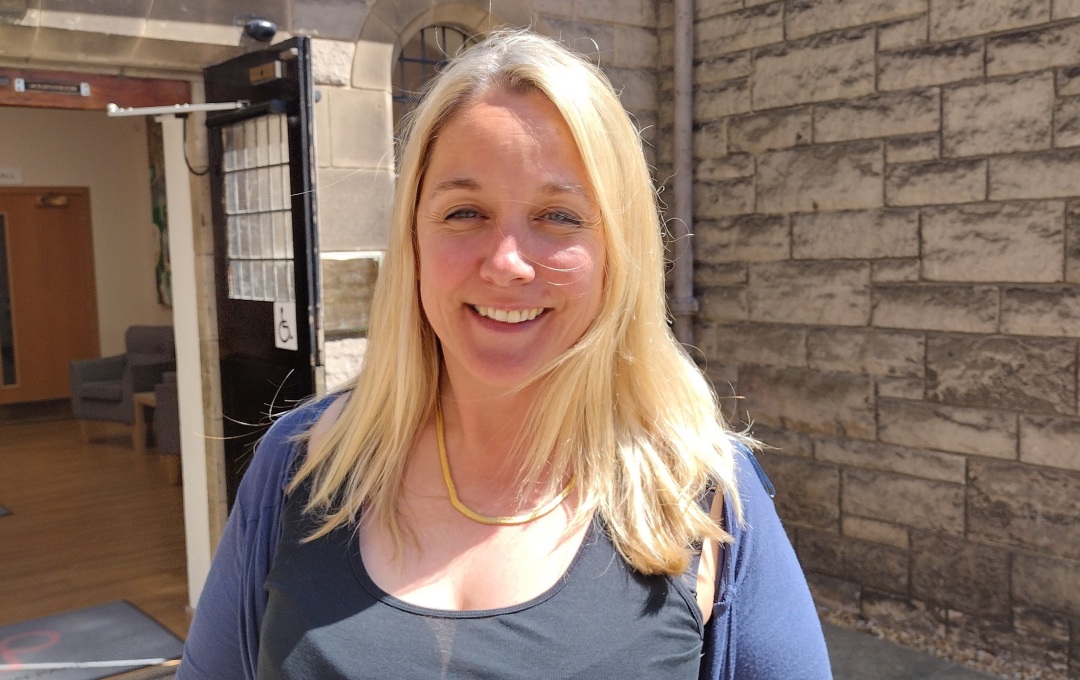Amy Hutton: Homelessness statistics - the story behind the numbers

Amy Hutton
Support Services are the last resort for the thousands of people represented (and the hundreds not represented) in today’s homelessness statistics. But they are at risk. Cyrenians director of services, Amy Hutton responds to the worsening homelessness crisis and makes the case for investment in the third sector.
Today’s newly released homelessness statistics show a steady increase in the time spent in temporary accommodation [currently an average of 234 days] and the numbers of people presenting as homeless [41,301 in one year as of September 2024].
Cyrenians – a charity that tackles the causes and consequences of homelessness – estimates that the true number is much higher, with current statistics not reflecting the number of people being denied support or accommodation due to lack of space in emergency accommodation.
For those people often the only option is services run by charities and not-for-profit organisations who provide advice and support to find somewhere to stay.
Whilst much of Cyrenians’ work is designed to be preventative, identifying and addressing risks before they become a reality, as Cyrenians service director, I oversee the teams who work with people already experiencing some of the most acute forms of rooflessness and housing instability.
As the crisis worsens, and the third sector faces significant financial challenges, it is important to highlight the reality being faced by many people working to mitigate the fallout from the housing emergency.
The numbers we are seeing presenting at our services are some of the highest I’ve ever seen in my career, working to provide support to people in Scotland. But I’d estimate that the true number of people experiencing homelessness is significantly higher. Many of the people my team work with – those being turned away by the housing services – aren’t reflected in those statistics. But they are being supported by the hundreds of charities and third sector organisations that work across Scotland.
64 of those services are run by Cyrenians. The Hospital In Reach team partners with hospital staff to ensure that patients aren’t discharged into homelessness. Our Navigator team works with people who are rough sleeping, our community link and income maximisation workers give advice and signposting to those who need it and our WISH team offers support the residents of the 30 properties we run for women made homeless by domestic abuse.
Each and every one of those team members works very hard to help our service users navigate the system that is under extreme pressure. They find or maintain accommodation for people that works for them or find places in supportive temporary accommodation. Whether they are recovering from a stint in hospital or fleeing an abusive partner, these people need quality homes – not just housing.
In the current environment, we are finding it harder and harder to be able to provide this kind of last resort support. Social housing has become so scant that the amount of time spent in temporary housing is growing. Currently, in Edinburgh, the average amount of time is 546 days – almost twice the average. As that list grows, viable options for the most vulnerable in our society become harder and harder to find.
On top of the pressures felt as a result of the housing emergency, the third sector is facing its own challenges, with the hike in National Insurance Contribution and increasingly competitive funding landscape putting many services at risk.
The fallout from the lack of this kind of support would be harder to chart in the statistics, but what I – and my teams – know for sure, is that people cannot be left to navigate homelessness – or the risks of homelessness – on their own. This system is complex and the reality of years spent in temporary accommodation can be traumatising – especially for families with children.
My hope is that these numbers inspire radical action – to build more social housing, but also to bolster the eco-system of support for those facing homelessness. We owe it to the people who need our advice, but we also owe it to the thousands of people across Scotland working to help people whilst experiencing insecurity within their own livelihoods.








